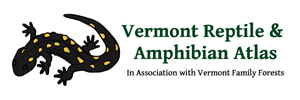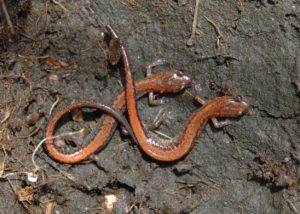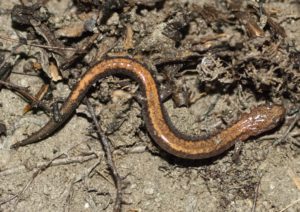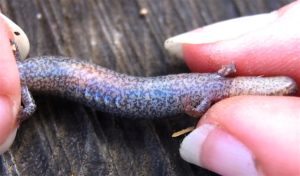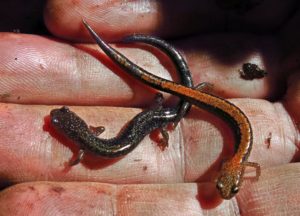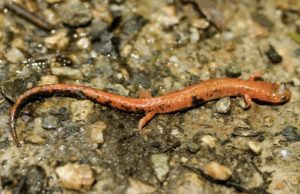Plethodon cinereus
Identification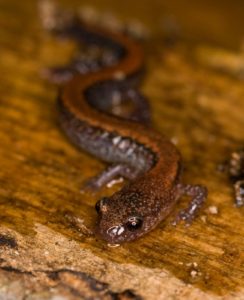
The Eastern Red-backed Salamander is one of three salamanders in Vermont with very similar body sizes and shapes. All three are slender and delicate salamanders about 4 inches long. The other two similarly-shaped salamanders in Vermont are the Four-toed and the Northern Two-lined Salamanders. Adults range from 3½ – 5 inches in length. Eastern Red-backed Salamanders usually have a reddish-brown back with darker sides. Their belly is a salt and pepper mix of white and gray that looks like granite. Occasionally salamanders missing the red color (lead phase) or missing the dark sides (red phase) can be found.
Eastern Red-backed Salamanders lay their eggs in grape-like clusters of 3 – 17, out of the sun, generally under or in moist logs.
Get more detailed identification and life history information by downloading the chart here.
You can learn more about this species and see some video footage by checking out this clip from our Rattlers, Peepers & Snappers DVD.
Range/Habitat
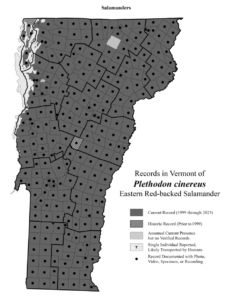
[ click image to zoom | download printable PDF ]

[ click image to zoom | download printable PDF ]
The Eastern Red-backed Salamander can usually be found in damp locations under leaf litter or in the coarse woody debris of mature deciduous or mixed hardwood forests. They are not normally found where the soil is saturated or acidic. Eastern Red-backed Salamanders are entirely terrestrial and overwinter underground.
The Eastern Red-backed Salamander is found statewide.
Status
This species has a state natural heritage rank of S5. Please report sightings of this species in Vermont if you have not reported them within the last five years from a given location. Any natural history observations (feeding, migrations, road crossing areas, early or late season appearance, abnormalities, etc.) are appreciated. Photographs are always helpful, particularly if your report is the first report of this species from a town.
Additional Photos
More Info
- Plethodon cinereus at Animal Diversity website
- Plethodon cinereus at Amphibiaweb
- Plethodon cinereus at the Canadian Herpetological Society website
- Plethodon cinereus at the Yale Peabody Museum of Natural History website
Species summary written by Ariel K. McK. Burgess.
